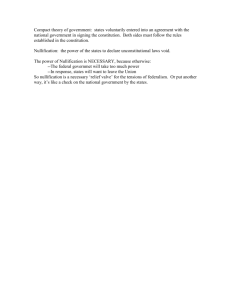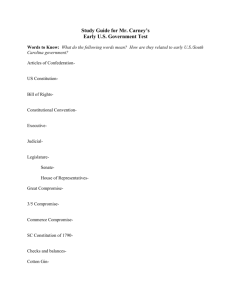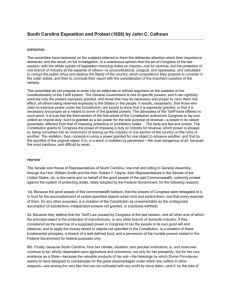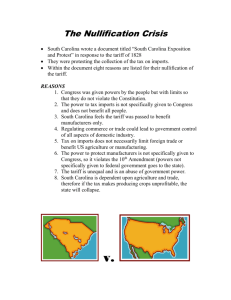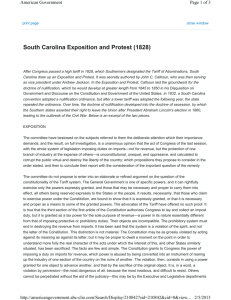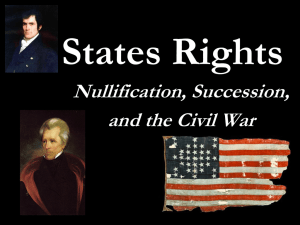“South Carolina Exposition and Protest”
advertisement
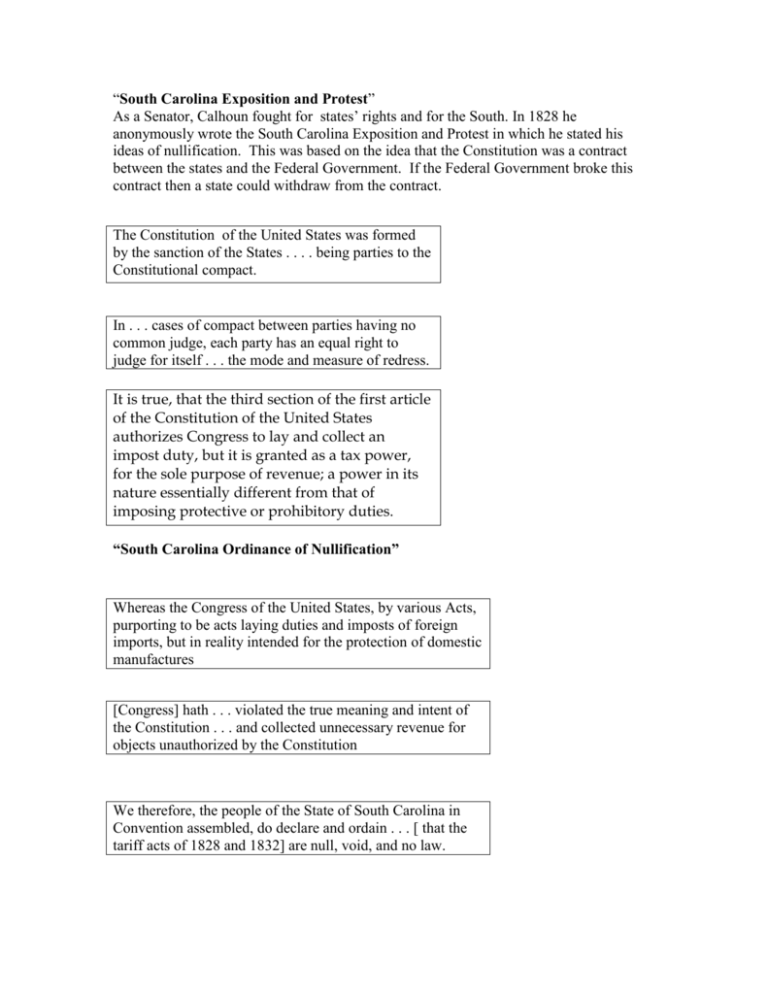
“South Carolina Exposition and Protest” As a Senator, Calhoun fought for states’ rights and for the South. In 1828 he anonymously wrote the South Carolina Exposition and Protest in which he stated his ideas of nullification. This was based on the idea that the Constitution was a contract between the states and the Federal Government. If the Federal Government broke this contract then a state could withdraw from the contract. The Constitution of the United States was formed by the sanction of the States . . . . being parties to the Constitutional compact. In . . . cases of compact between parties having no common judge, each party has an equal right to judge for itself . . . the mode and measure of redress. It is true, that the third section of the first article of the Constitution of the United States authorizes Congress to lay and collect an impost duty, but it is granted as a tax power, for the sole purpose of revenue; a power in its nature essentially different from that of imposing protective or prohibitory duties. “South Carolina Ordinance of Nullification” Whereas the Congress of the United States, by various Acts, purporting to be acts laying duties and imposts of foreign imports, but in reality intended for the protection of domestic manufactures [Congress] hath . . . violated the true meaning and intent of the Constitution . . . and collected unnecessary revenue for objects unauthorized by the Constitution We therefore, the people of the State of South Carolina in Convention assembled, do declare and ordain . . . [ that the tariff acts of 1828 and 1832] are null, void, and no law.
